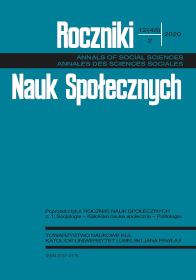On the Birth of Economic Science During the Italian-Scottish Enlightenment: Two Paradigms Compared
Abstract
The essay pursues a double aim. On the one hand, it offers a comparative analysis of the two main economic paradigms of the Enlightment period, i.e. the political economy one, associated with the name of Adam Smith, and thecivil economy one, associated to the name of Antonio Genovesi. On the other hand, it gives reasons why, in the last quarter of a century, the civil economy paradigm is gaining more and more grounds. The paper ends up with some considerations on the major drawbacks of libertarian individualism in the present epoch.
References
Adam Smith as Theologian, edited by Paul Oslington. New York: Taylor & Francis, 2011.
Agamben, Giorgio. The Kingdom and the Glory. For a Theological Genealogy of Economy and Government. Stanford: Stanford University Press, 2011.
Bentham, Jeremy. An Introduction to the Principles of Morals and Legislation. Kitchener: Batoche Books, 2000.
Bobbio, Norbert. Destra e Sinistra. Rome: Donzelli, 1999.
Bruni, Luigino, and Robert Sugden. “Fraternity: why the market need not be a morally free zone.” Economics and Philosophy 24, no. 1 (2008): 35–64.
Bruni, Luigino, and Stefano Zamagni. Economics and Theology in Italy Since the 18th Century. In The Oxford Handbook of Christianity and Economics, edited by Paul Oslington, 57–74. Oxford: Oxford University Press, 2014.
Caritat de Condorcet, Marie J.A.N. Esquisse d’un tableau historique des progress de l’esprit humain. Torino: Einaudi, 1969.
Dizionario di Economia Civile, edited by Luigino Bruni, and Stefano Zamagni. Rome: Città Nuova, 2009. 57–74.
Hill, Lisa. “Further Reflections on the Hidden Theology of Adam Smith.” The European Journal of the History of Economic Thought 11, no. 4 (2004): 629–35.
Montes, Leonidas. “The Adam Smith Problem,” Journal of the History of Economic Thought 25, no. 1 (2003): 63–90.
Pabst, Adrian. “Political Economy of Virtue: Genovesi’s Civil Economy Alternative to Modern Economic Thought.” International Review of Economics 14 (2005): 582–604.
Paganelli, Mario. “The Adam Smith Problem in Reverse.” History of Political Economy 40, no. 2 (2008): 365–82.
Sandel, Michael. Giustizia. Il nostro bene comune. Milan: Feltrinelli, 2010.
Screpanti, Ernesto, and Stefano Zamagni. A Profile of History of Economic Thought. Oxford: Oxford University Press, 2004.
Sen, Amartya. An Idea of Justice. Cambridge: Harvard University Press, 2009.
Smith, Adam. An Inquiry into the Nature and Causes of the Wealth of Nations, edited by Sálvio M. Soares, 16. Amsterdam–Lausanne–Melbourne–Milan–New York–São Paulo: MetaLibri Digital Library, 2007.
Smith, Adam. The Theory of Moral Sentiments. Cambridge: Cambridge University Press, 2012.
Waterman, Anthony. M. “Economics as theology: Adam Smith’s Wealth of Nations.” Southern Economic Journal 68, no. 4 (2002): 907–21.
Zamagni, Stefano. “Catholic Social Thought, Civil Economy and the Spirit of Capitalism.” In The True Wealth of Nations, edited by Daniel Finn, 63–94. Oxford: Oxford University Press, 2010.
Zamagni, Stefano. Impresa responsabile e mercato civile. Bologna: Il Mulino, 2013.
Zamagni, Stefano. “Disuguaglianza e giustizia benevolente.” In L’essere che è, l’essere che accade, edited by Carla Danani, and Benedetta Giovanola, 363–74. Milan: Vita e Pensiero, 2014.
Zamagni, Stefano. “L’economia civile come berillo intellettuale.” In Etica dell’economia, edited by Alessandro Biasini, and Carmelo Vigna, 149–70. Napoli: Orthotes, 2016.
Copyright (c) 2020 Roczniki Nauk Społecznych

This work is licensed under a Creative Commons Attribution-NonCommercial-NoDerivatives 4.0 International License.


